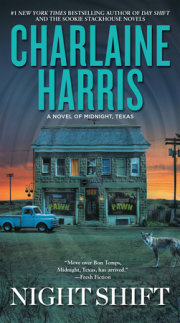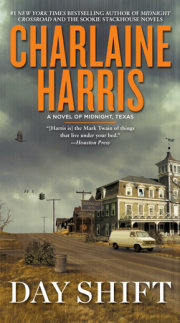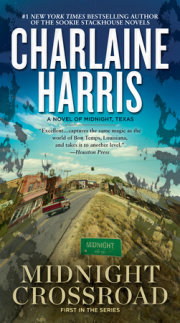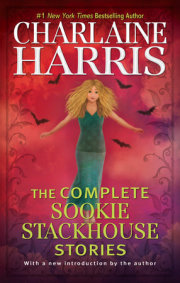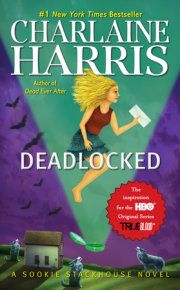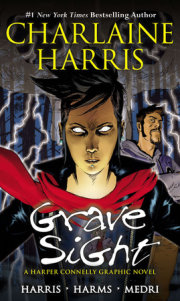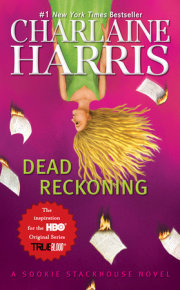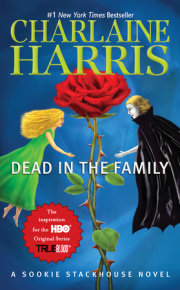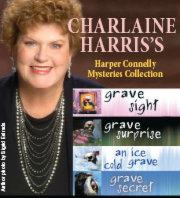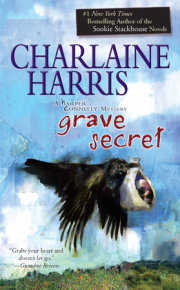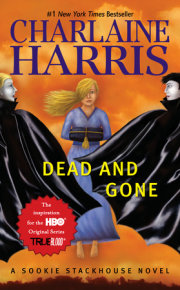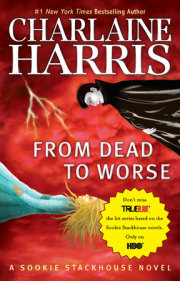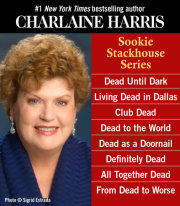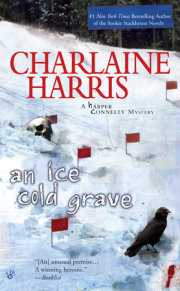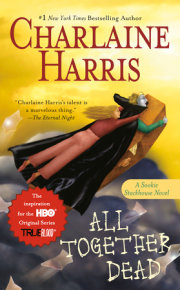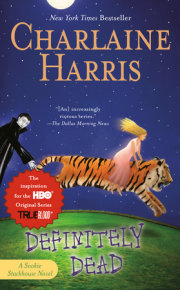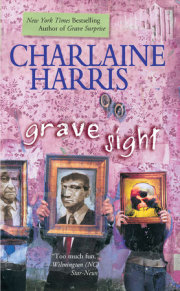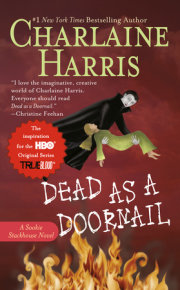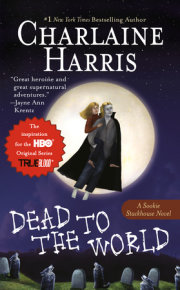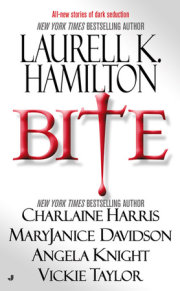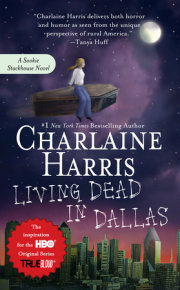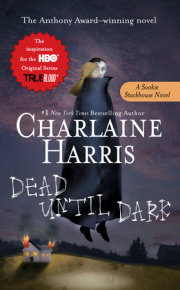NIGHT SHIFT excerpt
The first suicide arrives one October night.
He is a middle-aged man with a scruffy beard. He parks his battered pickup in front of the Midnight Hotel. The six-to-midnight clerk, a junior college
freshman named Marina Desoto, later tells Deputy Anna Gomez that when she saw the pickup pull to the curb, she assumed the driver would come in to rent
a room. Marina does not add that she had been a little excited at the prospect, since in the months she has worked at the hotel only six people have
asked for a room during her shift.
Marina’s hope is dashed pretty quickly.
Peering out the glass door, she watches the man fall out of the pickup “like he was drunk,” she tells Deputy Gomez and Sheriff Arthur Smith.
Since Gomez knows Marina’s family, she also knows Marina is fully conversant with the behavior of drunk people.
“What did he do then?” the deputy asks.
“He walked funny, kind of leaning, like a big magnet was pulling him into the middle of the crossroad. And then he . . .” Marina’s voice trails off,
and tears roll down her face. She lifts her hand to her head, forefinger pointed and thumb cocked, and mimes pulling a trigger.
“You saw this from the front desk?” Smith asks. He’s checked the line of sight, and he’s skeptical.
“No, you can’t see the whole intersection from the desk,” Marina says immediately, but not as if she’s really thinking about the question. “I had
gotten up and walked to the door to lock it, after I saw him get out of the truck. Because he was acting so weird.”
“Smart,” Gomez says. “So he was just carrying a gun in his hand?”
“He pulled a gun out of his waistband. And he shot himself.”
Gomez makes herself keep her eyes on Marina, though she’s tempted to turn to look at the dark heap still crumpled by the road. An ambulance is waiting
to take the corpse to the nearest medical examiner’s office.
“He didn’t say anything? You didn’t see him make a phone call?” Sheriff Smith says instead, going over ground already covered. He’s seen a cheap cell
phone in the man’s shirt pocket.
“No sir,” Marina tells him. “He didn’t do nothing but get out and shoot himself.” And she starts crying again. Deputy Gomez sighs and pats Marina on
the shoulder.
Anna Gomez has never liked Midnight, and its people are all guilty until proven innocent to her, no matter what her boss says. But even Gomez can’t
hold the Midnighters responsible for this suicide, though she’d love to find a way.
Gomez gives in to the prickling on her skin and turns to look around her, feeling the eyes on her. The locals are awake and watching. Though this is
surely a normal human reaction to a lot of lights and sirens late at night, it doesn’t make her feel any more comfortable.
Midnight and its people give Gomez the creeps. But she has to admit, none of them approach her to ask questions, and none of them try to get close to
catch a glimpse of the body.
It never occurs to Anna Gomez that this is because they are all well aware of what a body looks like.
Chapter One
The next night, almost all the people in Midnight went up the steps to gather in the pawnshop owned by Bobo Winthrop, owner and proprietor, who worked the
day shift there.
Midnight Pawn was a very old store with wooden floors that creaked in a friendly way. It was crowded with many curious items. The big open area at the
front of the shop was hospitably full with chairs of all descriptions and ages, which made it made a natural meeting place. The counter, with its high
stool, was to the left, parallel to the wall. Normally, that was where Bobo sat when there were customers.
But when there weren’t, like tonight, Bobo sat in his favorite velvet chair. It was very old, and the velvet was worn, but Bobo found it comfortable and
stylish. He’d positioned it to give him a good view of his domain, from the loaded shelves that held the strange discards of the human race, to the display
cases in which objects gleamed and glittered. There was a whole shelf of sanders, for example. And one of bubblegum machines. And jewelry, both real and
fabulously fake.
And there was one secluded corner full of magical items. Fiji Cavanaugh, the witch who lived across Witch Light Road, had suggested that Bobo let her
inspect those before they were placed on display.
Tonight, Fiji came in first. She smiled at Bobo and found a place to sit where she could see everyone. The witch, a brown-haired woman in her late
twenties, was literally well rounded and had lovely skin, at least in part because she kept it protected from the Texas sun.
The Rev and his ward, Diederik, took up chairs beside Fiji. The Rev was a sparse man; short in stature, short of words, thin and bony and dry. His thinning
dark hair was combed straight back. The Rev always wore the same ensemble: a white shirt, black pants, a black coat, and a black cowboy hat and boots. He
sported a string tie with a turquoise stone fixing it around his neck. Wearing the same ensemble every day simplified his life.
The Rev’s companion, Diederik, provided a sharp contrast. Diederik radiated health and vitality. The boy looked as though he were nineteen, perhaps
entering college like Marina Desoto, but that wasn’t so. Diederik had a broad olive face, wide violet eyes that slanted a bit, and dark thick hair. He was
built like a wrestler, and he moved with grace.
Before he settled into his chair, Diederik gave Fiji a kiss on the cheek. She smiled at the boy, hoping the smile held nothing but motherly interest. When
she’d met him a few months ago, he’d been a little boy. Now he was a full-grown male with a lively interest in females.
Fiji looked over at Olivia Charity, the only other woman present. Did Olivia, too, have a few slightly conflicted feelings about Diederik? But she sensed
Olivia didn’t; that in fact, he was barely a blip on Olivia’s radar.
But Olivia let Fiji know who she was thinking about. “Lemuel’s still working on those books,” she said to Fiji, who hadn’t asked. “In fact, he eats,
drinks, and sleeps those damn books.”
“Golly,” said Fiji, who couldn’t think of anything more helpful to say. Lemuel could focus like a laser beam, but she’d never seen him that concentrated on
anything. The volumes in question had been hidden in the pawnshop for decades, and for decades Lemuel had looked for them. Then Lemuel had sold the
pawnshop to Bobo, staying on as night manager. Bobo had found the cache, not realized its importance, and moved it up to his apartment, planning to examine
the books someday. Now Lemuel had discovered he couldn’t read the script in one, and naturally, that was the one that was most important, though Fiji
didn’t know why.
Chuy Villegas and Joe Strong, the couple who ran the Antique Gallery and Nail Salon, nodded easily to Bobo as they entered. Chuy patted Fiji’s shoulder.
Diederik rose and hugged them, and scratched their dog’s head. The two took odd chairs, side by side, and set their little Peke, Rasta, down. He snuffled
around the room, visiting everyone in turn, and then settled by Chuy’s feet.
Manfred Bernardo, the psychic who rented the house next door from Bobo, hurried in and threw himself into a chair by his landlord. He gave everyone a wave
or a word. Manfred, almost as small and spare as the Rev, was pierced liberally and with great effect, and lately he had begun getting tattoos. He pulled
up his T-shirt sleeve to show the new one on his left shoulder, an ouroboros, to Fiji, and she shook her head, smiling.
“Why volunteer for pain?” she said.
“It’s for my art,” Manfred said dramatically, and they all laughed. Manfred regarded the tattoo with admiration. “Actually, I think it makes me look
badass.”
No one raised the topic of the evening.
They were all waiting on Lemuel, who would be there when the sun set.
In October, the sun went down a little before seven thirty p.m. One of the clocks in the pawnshop chimed the half hour, and a minute or two later, Lemuel
Bridger came up from his basement apartment. There was a sense of completion when he took his place in the circle to Bobo’s left.
The two were as much of a contrast as the Rev and Diederik. Bobo always seem relaxed, and now that he was in his thirties his blond hair was a little
faded, and his blue eyes were a little sad. But he still could have been featured in an advertising campaign for something casual but expensive, like
sunglasses. Lemuel could never pass for human. He was too white, white as bleach, and his eyes were a strange gray. He didn’t even move like a human being.
“Did anyone know the man who killed himself last night?” Fiji asked the little crowd. “Joshua Allen, right, Manfred?”
“That’s what they said on the news.”
“I didn’t know him,” Lemuel said. His hoarse voice was at odds with his white, gleaming appearance. “But I knew the first one.”
There was a moment of absolute silence.
“The first one. The first what?” Olivia said.
“The first suicide.” Lemuel’s pale eyes went from one of them to another. If he was looking for someone to nod in agreement, he was disappointed.
Fiji was stumped. “Are you looking back a decade or something?” Vampires could lose track of time.
“I’m looking back a week,” Lemuel said, in a bored way. “The first one was at three in the morning last Tuesday. A homeless woman stabbed herself to death
right under the traffic light. I knew her, a little. Her name was Tabby Ann Masterson.”
Even Olivia had not expected this bombshell. “You didn’t tell me,” she said.
“I could not imagine that it had anything to do with Midnight,” he said. “No one was awake but me.”
Lemuel was up all night, of course. Though the pawnshop was up a few steps from the ground level, and though he was often behind the counter, the pawnshop
sat at the northeast corner of the only intersection in Midnight: the crossroads of Witch Light Road and the Davy highway. And from behind the counter,
Lemuel could get a somewhat abbreviated view of what was happening there. If he happened to be closer to the window, his view would be unobstructed.
Fiji smiled to herself at the long silence. Even if Lemuel had said he’d been facing the wall when it happened, none of them would have dared to question
his word. Lemuel, the oldest of the town’s inhabitants by a century, was not a joker, a kidder, or a fantasist.
“I’ve met Tabby Ann,” she said. “She used to come by my place, looking for my aunt. Evidently, Great-Aunt Mildred used to give her leftovers. I gave her
some food once, but the next time I wasn’t there, and she peed on my back porch. I cast a spell to find out who had done it, because Mr. Snuggly didn’t
see.”
“Where is her body, then?” Manfred asked. “Tabby Ann. What did you do with her?” There was another profound silence. “Wait, sorry, don’t need to know.” He
waved his hands, palms forward, warding off unneeded information.
Lemuel smiled at Manfred, briefly. “Tabby Ann Masterson was a homeless woman,” Lemuel said, “as you call it now. I knew her during her better days, when
she had a man and children and a home. She had no one left any longer.”
“Two suicides,” Joe Strong, who looked exactly like his name, said. “In the same spot, in the same town. Joshua Allen can’t be a copycat, since he couldn’t
have known about Tabby Ann.”
Manfred said, “The article I read about him online said he was an itinerant laborer.”
“Which is another way of saying he didn’t belong anywhere.” Olivia’s voice was harsh. “But why choose Midnight for his death? Could it be a coincidence?”
Fiji felt doubtful, and she saw that same expression on the faces of everyone around her.
Bobo said, “This seems like a magic thing.” These were the first words he’d spoken all evening. Bobo had seemed a little broody for days, though no one was
sure why. Fiji, who was always aware of Bobo, was a little hyped up by the fact that she was almost certain that he was staring at her even when she wasn’t
speaking. She didn’t know why; she sadly suspected it was not for the same reason she liked to look at him. In fact, looking at Bobo was one of her
favorite things to do.
Fiji made herself concentrate on the moment as she brushed her wild hair away from her face. “It would have to be because this is a crossroads,” she said
slowly. “It might be a coincidence that two people committed suicide here in a week, but they killed themselves in the same spot. That just can’t be a
coincidence.”
Reluctantly, Chuy Villegas raised a hand. When they all looked at him, he said, “The ghosts have been agitated.”
Manfred sat up straight and stared at Chuy. Short and swarthy and in his forties, Chuy did not look like the kind of man who would talk about ghosts in a
very prosaic way. (Manfred himself, with his piercings and tattoos and dyed platinum hair, did look like such a person.) “You see ghosts?” Manfred
said, keeping his voice matter-of-fact with an effort.
“We do,” said Joe. Joe was just as muscular as his partner, but taller and fairer.
“Do you see Aunt Mildred?” Fiji asked, startled. Her great-aunt had left her the cottage she lived in, and Fiji had adapted to life in Midnight as if she’d
been born to it.
“All the time,” Chuy said.
“She’s okay?” Fiji looked anxious.
“Right as rain,” Joe reassured her. “But lately, along with all the other ghosts, she’s been breaking routine.”
Manfred so wanted to ask what “routine” was for a spirit, but that would be veering off the subject. “Maybe I can ask some questions later,” he
said. Chuy nodded and looked resigned.
“So they are feeling the pull of the crossroad, too,” Lemuel said, though not as if he were completely sure. “Or maybe something is coming to Midnight,
something bad, something we should be afeared of.”
Fiji cleared her throat. “I think it must be already here. Otherwise, why two deaths on the same spot?”
Diederik said, “Can we kill it?” The boy was definitely excited.
“Not until we know what it is and what the consequences would be.” Joe turned to Lemuel. “Is this what you’ve been looking for in the books? Facts about
something magical here in town?”
“I’m working on a translation,” Lemuel said rather coldly. “The books are all books written by vampires. For a few of them, the volume I have is the only
volume remaining in the world. As I examined them, I found one that I thought would lead me to information about Midnight. It seems to be a history of
magical sites in this country, from the map included. I had to find someone who could tell me what language the book was written in.”
“When was it written?” the Rev said.
“It was written a couple of hundred years ago, so it is the most recent of the books. But it was written in a language that has not been spoken for two
thousand years, or longer.”
The Rev nodded. Fiji could not tell if the ancient minister was glad, surprised, or irritated at this information.
“Who would be the intended reader of such a book? And how come you have to translate it?” Fiji was curious. “If it’s about America, shouldn’t it be in
English?”
Lemuel said, “It was written by a vampire who was touring the U.S. before I was born.”
“But the book’s only a couple hundred years old?” Fiji didn’t get it.
“Yes. I believe from the binding and the printing that this book has only been around for two centuries, give or take. And it may have been written long
before it was printed.”
“But . . .” She stopped, deciding to think rather than talk, which was always a good idea around Lemuel.
“The vampire was from a long-dead culture,” Joe said.
Lemuel nodded. “Before the Romans. I believe the vampire was Etruscan. I found a rough dictionary, written by a child of the only Etruscan vampire I’ve
ever heard of. That’s a help, but it’s still very slow going.”
Rasta whined at Joe’s feet, and he picked up the little dog and settled it on his lap. Chuy reached over to scratch Rasta’s head.
“Is there any way you can skip around a little in the book to find out if our crossroad is in there?” Manfred said tentatively. Offering Lemuel advice was
a risky proposition.
“I dare not skip around because I may miss the very thing I am reading the book to discover,” Lemuel said. “This place wasn’t named Midnight until the late
eighteen hundreds, so it’s simply described in this book, if it’s in there at all. In the meantime, I’m real sure we need to be on the watch for more
suicides.”
“More?” Bobo said. He gave Fiji a dismayed look.
Lemuel said, “Why stop at two?”
“At least they’re dying at night,” Fiji said, trying to find something to be glad about. “And at least no one else knows about the first one.”
“And that’s better because?” Manfred looked at her with his eyebrows raised.
“Because we have a chance of covering it up,” Diederik said promptly. “As Lemuel did the first one.”
“Can you imagine the news coverage?” Bobo spoke quietly, but everyone listened. “The headlines? ‘What Draws Suicides to This Remote Texas Town?’”
“Honey, I think they’re urging you to read quick as lightning,” Olivia said to Lemuel.
The vampire smiled. “I can get a lot done on night duty here,” he said. Lemuel worked the night shift at the pawnshop, which was closed from late afternoon
until dark, and from dawn until nine o’clock, or whenever Bobo got down to open it up. The doors were shut only between dawn and eight (or nine) a.m. and
five or six p.m. to dark.
“Should we set some kind of watch?” Fiji asked. “To stop people?”
Manfred’s mouth turned down with distaste. Joe and Chuy looked grim. Olivia hunched her shoulders. Even for the Midnighters, who were used to weird and
even bloody events, this seemed like an unpleasant prospect.
“I’m not sure how we could stop them,” Bobo said. They all looked at him. “If someone’s determined, he just walks out there and shoots himself, like the
guy last night.” He shrugged. “No way to stop that guy, right?”
“But we had no warning, and now we know,” Fiji said.
“I don’t think we can stay awake all night for the remote chance that someone else will stop to off himself,” Manfred said. “We’d have had to have been right by Joshua Allen last night. He got out of his truck, took a step or two, pulled out the gun, and blam! What if one of us had tried
to stop him? Would he have shot us, too?”
There was a scattering of nods.
“So we won’t keep a night watch,” Lemuel concluded. “But I’ll do my best to spot any others who appear at the crossroad.”
“Did you see that there’s a new guy at Gas N Go?” Olivia said.
Chuy and Joe, who lived one vacant building away from the corner convenience store, smiled simultaneously. “You should see him,” Chuy said. “He’s . . .
remarkable.”
Fiji, who was removing the spell that had kept interlopers out of the store during their meeting, finished her task and rejoined the conversation. “Not
going to give us any hint?” Fiji said.
“Nope. Go see.” Chuy laughed. “Teacher was in to fix our showerhead and faucet yesterday, and he was delighted to be free of the Gas N Go.”
“He didn’t have to take charge,” Joe said.
“He said the money was good and steady.” Olivia shrugged. “Hard to turn down when you have a baby. Madonna said she enjoyed knowing where he was all the
time. But even she’d gotten pretty aggravated at him always being busy.”
“I’m surprised she talked to you enough to tell you that,” Joe said.
It was true that Madonna was not much of a talker. None of the Midnighters felt they knew her. And no matter how friendly her husband Teacher was, he never
seemed to tell them anything of importance about his life or his past. These reasons were good enough to keep the Reeds out of town meetings.
“I’ll go down to Gas N Go soon. It’s always nice to have a new community member,” Fiji said brightly, as they all stood up to leave.
Joe and Chuy laughed.
Before Fiji could ask them to explain what was so amusing about the newcomer, a customer came in.
They all turned at the ringing of the bell over the door.
The customer was haggard, and very young, and he was towing a girl by the hand. She was in her teens, but she hadn’t gotten there easily. From the way her
eyes ping-ponged around, she’d enhanced her world chemically.
“Here!” the boy said to Lemuel, shoving the girl toward him. “I want to pawn her!”
They all froze, waiting to hear what Lemuel would say.
“I don’t take live people or live animals,” the vampire said mildly. “And lest you should think that means I want her dead, you best think again.”
“Then I’ll pawn my soul!” The boy laughed again, defiant and dramatic, obviously feeling he was making a grand gesture.
“Never say that.” Chuy made his way through the chairs to where the boy stood. “You only have one. You can’t imagine the price of it, or the cost of losing
it. What is it you need money for?”
Under Chuy’s serious eyes, the boy wilted a little. “I owe someone a lot of money, and I was going to sell some Ecstasy, but she took it all,” he
said, giving the girl a petulant slap on the butt.
“You mean she ingested it all?” Manfred said, alarmed. “Doesn’t she need to go to a hospital?”
This had obviously not occurred to the boy, who gave a violent sort of shrug, as if to throw off this petty concern when his own problems were so much
vaster. “So anybody want her for anything?” he demanded. “She won’t mind. She won’t even remember.”
Manfred’s fists clenched and he took a step forward. Fiji had the same reaction. Somewhat to Fiji’s surprise, Chuy was faster than either of them. He’d
been pulling out his keys, but now his hand went instead to the boy’s face. He put his thumb in the middle of the boy’s forehead and spoke a word, though
Fiji could not remember afterward what the word was. Immediately, the tension drained out of the boy’s body, and he let go of the hand of the addled girl,
who sagged into a chair the minute she was free.
Chuy removed his thumb.
The boy said, “I’m sorry.” His gaze was almost as blank as the girl’s, but his stance was relaxed and receptive. “I’m sorry,” he said again. “I should be
getting home. To figure out my problems. I shouldn’t involve anyone else. Selling other people is bad.”
“Yes,” said Chuy sadly. “It is, boy. You are a bad one, but a young bad one. You may be able to change.”
“I’m going to try,” the boy said. Without another word, he left the pawnshop, and they heard his car start up and drive away.
Fiji said, “What do we do with her?”
Joe crouched by the girl’s chair and took her limp hand. “Her parents are Margaret and Louis Hatter. They live in Davy,” he said with assurance, and no one
asked how he knew.
Manfred looked the address up on his phone, which he then laid down on the counter and forgot. “I’ll run her home,” he said. “Feej, you want to come with
me, in case they think I took advantage of the little idiot?”
“Okay,” she said, casting a glance at Bobo, who was looking at her (again!) with an expression she couldn’t read. He appeared to be lost in some unpleasant
place, and as she watched he went out the side door leading to a landing. He was mounting the stairs to his apartment in the last glimpse Fiji had before
the door swung shut.
Fiji sighed heavily, not even aware she did so, and she turned back to help Manfred. Between them, they supported the Hatter girl across the pawnshop
driveway to Manfred’s. With some difficulty, Fiji taking her head and Manfred her feet, they maneuvered her into the back seat of Manfred’s car. During the
short drive to Davy, the girl’s eyes were open. She seemed to be admiring the texture of the roof.
The search for the Hatters’ house took longer than Fiji had anticipated, since street signs were not abundant in Davy and Manfred had run out without his
phone. Finally, Manfred parked in front of a small ranch-style home on a modest street.
Manfred tugged the girl’s hands until he got her out of the back seat. Then Fiji looped one of the girl’s arms around her neck, and Manfred did the same
with the other one. With the girl propped between them like a barely ambulatory sack of laundry, they lurched across the small lawn to the front door and
rang the bell. A fortyish woman opened it. When she saw the girl her shoulders sagged with relief. Or maybe it was resignation.
“Oh, Marilyn,” she said sadly. “Again.”
“You’re Margaret Hatter?” Fiji asked. “Her mom?”
“Yes.” Margaret Hatter didn’t sound happy about it. “Here, I’ll take her.” She didn’t ask Fiji any questions or level any accusations during the awkward
process of transferring the limp young woman from two people to one.
Fiji said, “We found her like this.” She wanted to make it absolutely clear she and Manfred had had nothing to do with Marilyn’s condition.
“All right,” said the woman, as if Fiji had asked her to believe something quite impossible. “Sure, honey.”
Stung, Fiji opened her mouth to protest this implied judgment.
“I hope she gets better,” Manfred said rather loudly, and yanked Fiji away from the door.
It was closing, anyway.
On the drive back to Midnight they were mostly silent. When he dropped her off at her house, Fiji said, “I just didn’t want her to think . . .” The
conversation had been gnawing at her.
“Give it up, Feej,” Manfred said. “Mrs. Hatter didn’t ask a single question. She was going to think the worst if we’d had wings and white robes and a
heavenly choir.”
“I can’t really blame her,” Fiji said.
Manfred sighed. “Neither can I,” he said.
“I hope this is the end of the trouble,” Fiji said after a short silence.
“We all do. But you know it’s not.”
From her front porch, Fiji watched Manfred’s car begin moving. Since there was no one coming, he backed across Witch Light Road. She stayed outside for a
few more minutes, looking at the crossroads. She half-expected to see another hapless soul staggering toward the center, some weapon of self-destruction in
hand. But the only thing to see was Midnight’s one traffic light, resolutely following its pattern. The intersection of Witch Light Road and the Davy road
was the reason Midnight was alive. The little community had been founded because of those roads, when they were just trails.
Catty-cornered from where she stood, Fiji could see that the lights inside Gas N Go were still on, and someone was moving around inside. As she watched,
the lights went out and a man emerged, locking the doors behind him. He walked north, to the house where the previous Gas N Go manager had lived. He moved
quickly and lightly, though Fiji couldn’t tell anything more about him. Now she was curious about the new resident. She would have to bake something for
him.
After a moment, Fiji went inside and opened a locked drawer under the counter in the shop. There was a curious selection of items in the drawer: a crumpled
tissue, a lipstick, a napkin, a knife, an ink pen, a squeeze bottle of hand sanitizer, and other mundane items. All of them were used. To this odd group,
she added a folded dollar bill that had fallen from Chuy’s pocket in the pawnshop. She put it on top of an index card already prepared with Chuy’s name.
She slid the drawer closed very gently, and relocked it.
Instead of going to read in her bedroom, her original thought, Fiji returned to the window to look out at the traffic light and the pavement below it.
Fiji tried to detect something different about the intersection, but there was nothing visible, even to a witch.
But Fiji was sure this particular crossroad was exerting some malignant pull. She hoped it would not spread a pall over all the people who lived around it,
but she could not believe they’d all escape it.
No coincidence in the world would allow for two people, who presumably did not know each other, to commit suicide in the same place within a few days. This
crossroad was not a famous site like the Golden Gate Bridge or Niagara Falls. This was a place where two small roads crossed in a very small town not
particularly close to anywhere notable.
Or was there? Wasn’t that the kind of cosmic joke that made regular people decide places were haunted, or cursed?
“Well,” she told her marmalade cat, Mr. Snuggly, who’d come to stand beside her, “I guess we’ll know soon.”
Copyright © 2016 by Charlaine Harris. All rights reserved. No part of this excerpt may be reproduced or reprinted without permission in writing from the publisher.


